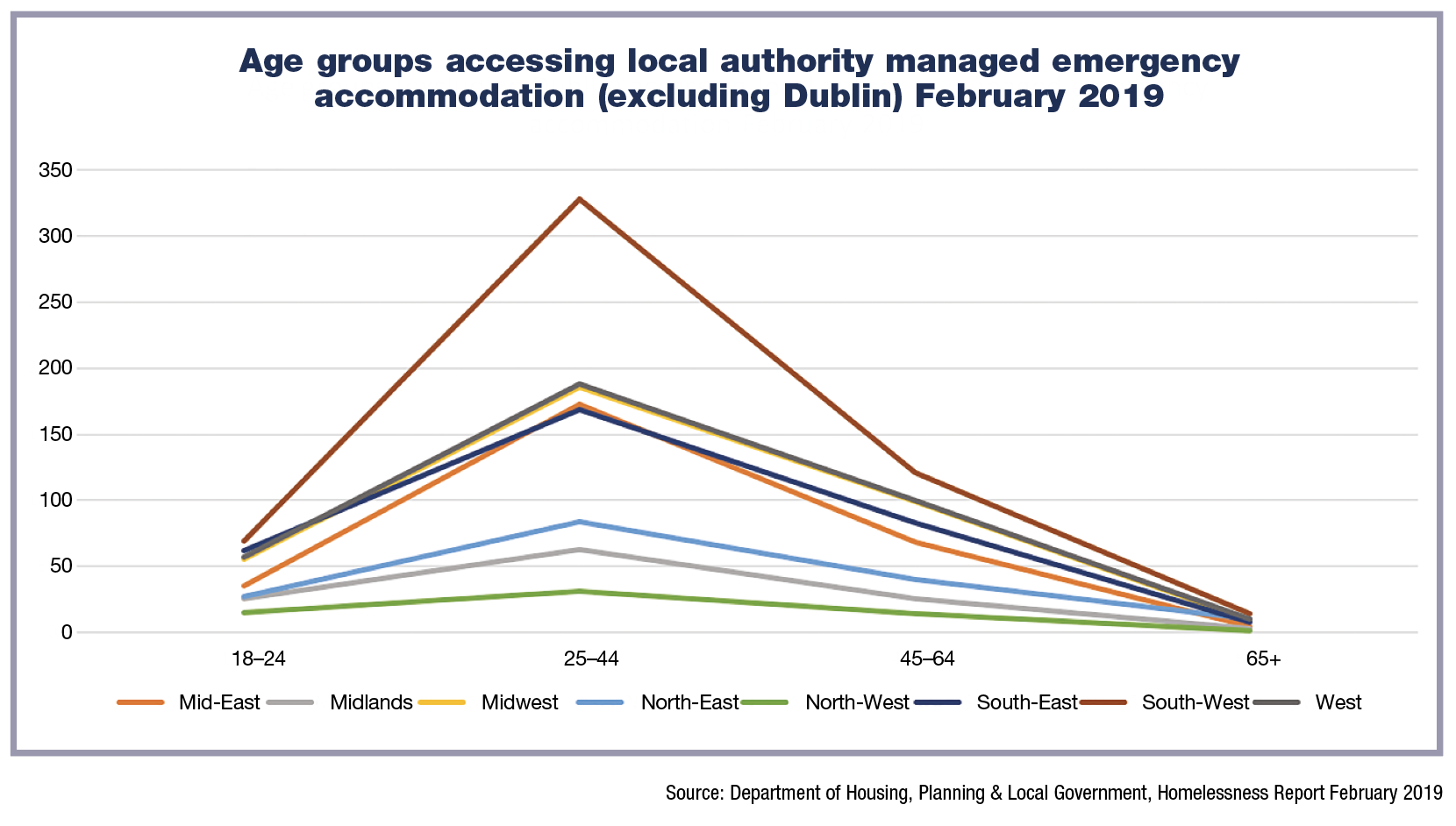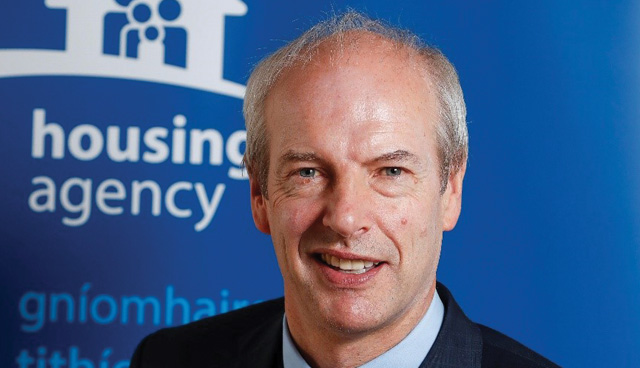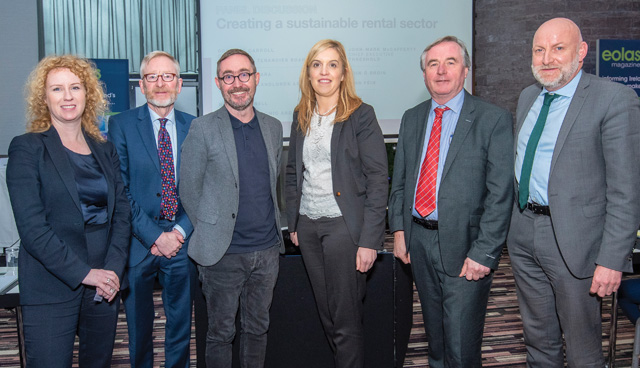
VacantHomes.ie: Tackling the myriad of vacant homes in Ireland
17th May 2019
Responding to acute need
17th May 2019Addressing homelessness
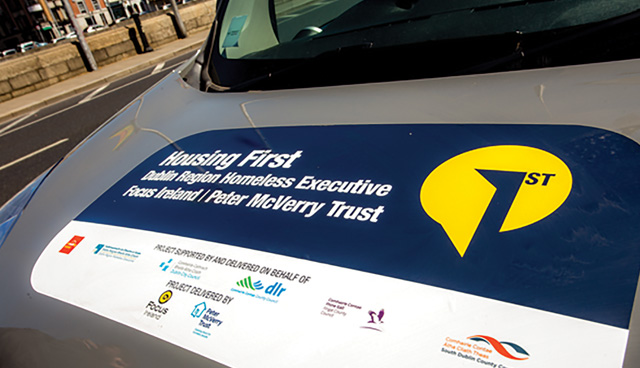

The number of homeless people in Ireland, adults and children, totalled 10,264 in February 2019. These official figures were contained in a report published by the Department of Housing, Planning & Local Government.
The figures confirm a rise of 277 people in one month alone from 9,987 in January up to the February figure. The statistics also show that 3,784 of the number homeless are children (in 1,707 families).
In essence, the numbers have now risen for two months in a row, each time representing a new record for those experiencing homelessness in Ireland.
For the last few months the Government has been accused by charities and other pressure groups of repeatedly redefining ‘homelessness’ in order to avoid reaching the 10,000 mark.
Cause
Significantly, most of the targets set out within Pillar 1 of Rebuilding Ireland (which deals specifically with homelessness) have now been met. Of those projects still ongoing, the action points that stand out include the commitment by government to increase the ‘Rapid Build’ programme across all local authorities.
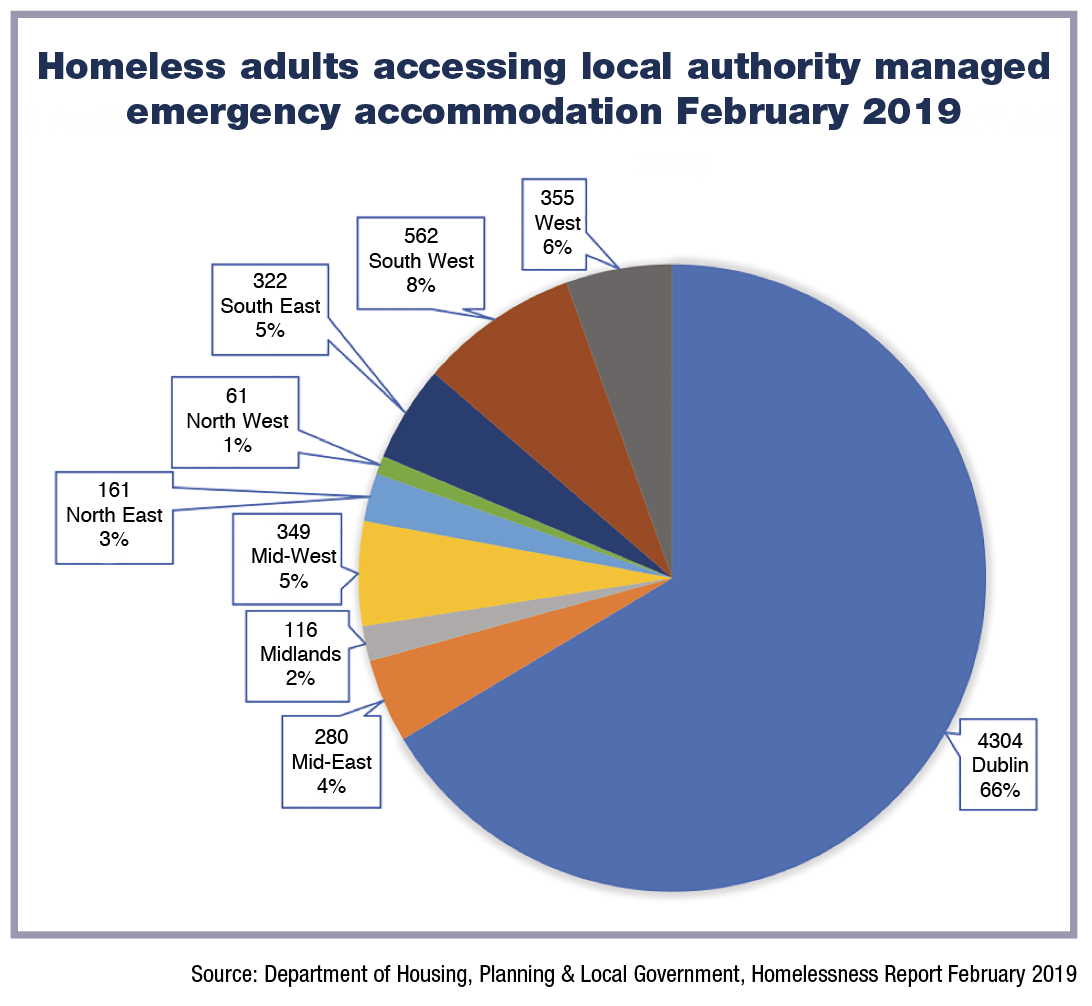
The most recent Rebuilding Ireland update confirms that all local authorities have been asked to review the social housing projects in their areas and in the interest of achieving earliest delivery, requested to consider their suitability for design and build contracts under the Rapid Delivery Framework set up by the Office of Government Procurement.
The authorities have also been asked to consider schemes which are suitable for early commencement. Meanwhile, Dublin City Council (DCC) is developing a volumetric rapid delivery programme of apartment developments. A procurement framework of Design Build Contractors for the delivery of these units is in the process of being established.
The process commenced in August 2018, with a request for expressions of interest, and the assessment of tenders resulting from these expressions of interest, is underway at present. It is expected that the framework will be in place by the end of the first quarter of 2019. Once in place, the framework will be available to all local authorities and approved housing bodies to use. It is envisaged that over 1,000 fast-track apartments/houses will be built using this framework, and while the majority of the projects are and will be advanced across Dublin there are also schemes being developed in other cities and towns across the country.
Another ongoing dimension to Pillar 1 of Rebuilding Ireland is that of tripling the targets for tenancies to be provided by Housing First teams in Dublin. In response to this challenge a consortium comprising Focus Ireland and the Peter McVerry Trust has been contracted to deliver Housing First in Dublin, directed towards people in long-term supported temporary accommodation and entrenched rough sleepers.
A National Director of Housing First was appointed in February 2018, who has responsibility for the development of the programme nationally. The National Housing First Implementation Plan 2018-2021 was published in September 2018 and sets out Housing First targets for every local authority in the country, totalling 663 tenancies. At the end of quarter four for 2018, the Dublin Region Housing First Service had created 290 Housing First tenancies for 243 unique individuals of which 210 (86 per cent) have successfully retained housing.
But despite all this commitment and resource appropriation, homelessness levels continue to rise.
Last year saw staff in Citizens Information Services responding to over 100,000 queries relating to housing issues. A spokesperson says: “Many difficulties originate from low security, low stability, low quality and high-cost housing. Particular concerns that come up time and again include: the supply, processing and allocation of social housing plus the lack of availability, affordability and security of tenure of private rented accommodation across the country.
“The real threat of homelessness and the inadequacy of homeless supports is another fundamental issue that must be addressed.”
In its latest submission to the Government, the Citizens Information Board called for the removal of short-term activation incentives from income assessed under the Social Housing Assessment Regulations.
The statutory body is also calling for the introduction of additional rent regulation measures (such as linking rents to the Consumer Price Index) and allowing for the continued use of discretion with maximum rent limits in certain cases.
The provision of adequate resources to local authorities for the administration of the HAP (Housing Assistance Payment) scheme has also been identified as a priority action point for government.
Cork
Dublin is not the only region with a homelessness problem. Figures for the south west confirm that 815 men, women and children were recorded as staying in emergency accommodation in Cork and Kerry during one week in February 2019. This represents a 24 per cent increase since February 2018.
In response to this, Cork City Council is to appoint four additional housing officers, who deal directly with social housing tenant and community issues. A vacant homes officer role will also be funded, courtesy of the 2019 budget.
Three additional building inspector roles will also be funded, so that Cork City Council can further inspect the quality of private rented accommodation.
Meanwhile, the charity Focus Ireland believes that that the new record of over 10,000 people homeless must be a line in the sand in the battle to end the ever-deepening crisis. The charity has called for a period of honest reflection by the Government, and all parties concerned, to agree how we can deliver more effective policies.
The charity’s CEO Pat Dennigan says: “Despite all the good work being done, it is clear that current Government policy is failing to tackle the scale of the crisis. Reaching this appalling threshold of 10,000 people homeless must be a line in the sand that helps bring some honest reflection by the Government to help deliver changes that will end this crisis.”

